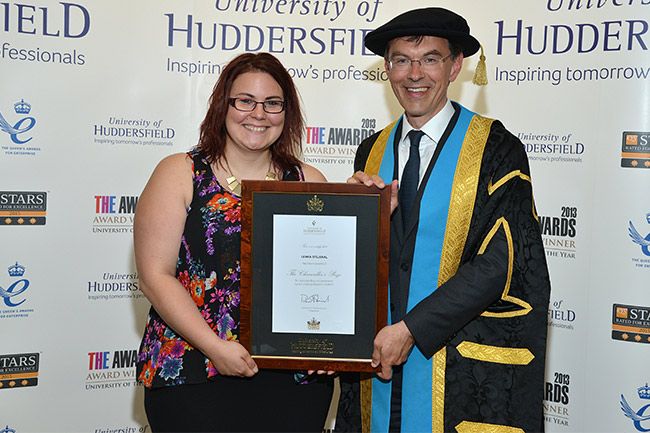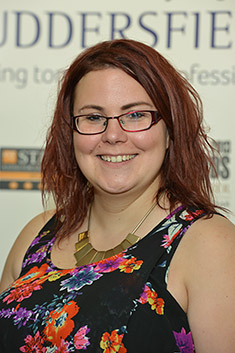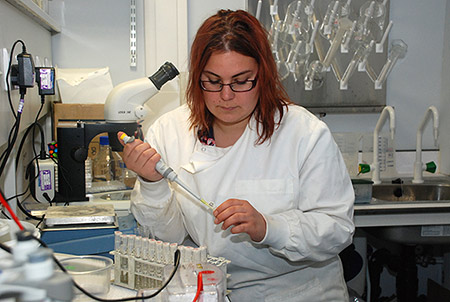Czech-born Lenka graduates in biochemistry and top in the School

Tue, 21 Jul 2015 08:55:00 BST
Lenka Stejskal has now received funding for her PhD from the Wellcome Trust
 CZECH-born Lenka Stejskal relocated to the UK to work as an au pair. But she had a dream of becoming a scientist. The University of Huddersfield has made it come true.
CZECH-born Lenka Stejskal relocated to the UK to work as an au pair. But she had a dream of becoming a scientist. The University of Huddersfield has made it come true.
Newly-graduated with First Class Honours for her BSc degree in Biochemistry, Lenka earned the highest marks of her cohort, earning one of the Chancellor’s Prizes that are awarded every year to an elite group of the University’s best-scoring students. Now, she has earned funding from the Wellcome Trust that enables her to embark on a four-year programme of study and research, culminating in a doctorate.
She has also co-authored her first published academic article and has enjoyed the experience of working at some highly-advanced research facilities.
“I always wanted to do science, but I never had any qualifications,” said Lenka, now aged 32. When she studied for the equivalent of A-levels in the Czech Republic she did not have the confidence to take the science route and did economic history and literature instead.
In 2004 came her move to the UK and after several years – which included the birth of her son Michael, now aged five – she decided to enrol at the University of Huddersfield for an extended degree, which included a foundation year, that gave her a grounding in several scientific disciplines.
Biochemistry was the subject she found most absorbing, with the study of proteins – vital to bodily function – especially fascinating.
 So after her foundation year, Lenka embarked on a biochemistry degree – a three-year course plus a work placement year, which she spent at the Institute of Cancer Therapeutics in Bradford. She has also worked closely with biochemistry lecturer Dr Richard Bingham, who has a special research focus on Borrelia, the bacterium that spreads the tick-borne Lyme disease, which can have highly serious symptoms.
So after her foundation year, Lenka embarked on a biochemistry degree – a three-year course plus a work placement year, which she spent at the Institute of Cancer Therapeutics in Bradford. She has also worked closely with biochemistry lecturer Dr Richard Bingham, who has a special research focus on Borrelia, the bacterium that spreads the tick-borne Lyme disease, which can have highly serious symptoms.
In her final year of study, Lenka’s work with Dr Bingham led to her being granted the opportunity to carry out research at the super-advanced Diamond Light Source – the UK’s national synchrotron, a “super microscope” that produces beams of light 10 billion times brighter than the sun.
The “Diamond” – as it is known to scientists – is a collaboration between the Government and the Wellcome Trust, which has now awarded Lenka a PhD scholarship that will see her based at University College London. She will spend an inter-disciplinary year on rotation between three laboratories before she focusses on a topic for doctoral research.
Alongside students Adam Dyer and Gemma Brown, plus lecturers Dr Bingham and Dr Peter Laity, Lenka is co-author of an article on Borrelia that is published in the journal Bioscience Reports.







